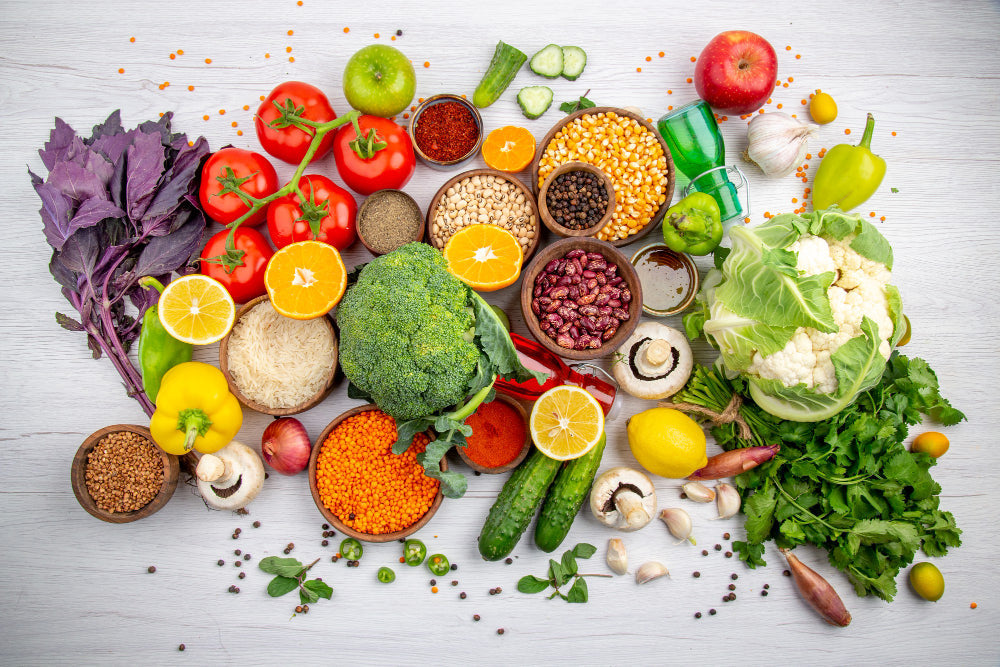Foods With High Sulfur Content
Did you know that sulfur is so plentiful in your body that it is beat only by calcium and phosphorus as far as minerals are concerned? Luckily, some foods have a higher sulfur content, which makes them good for you in a number of ways.
Benefits of sulfur
Although you don’t generally hear a lot about sulfur, this particular nutrient does some fantastic things for your body. For example, it helps your hair and nails keep from getting too brittle and weak. However, it has kind of the opposite effect on your cartilage and protein by keeping them flexible and working as intended. Sulfur also helps with muscular energy production via your cellular mitochondria and also by assisting with conversion of B vitamins so that your body effectively uses the carbohydrates you consume. In addition, it promotes healthy insulin use and works to detoxify your body.
Recommended daily amount
How much sulfur do you need on a daily basis? Unfortunately, that question remains relatively unanswered. While health professionals admit its importance, they aren’t quite sure how much you need regularly which can make it difficult to know if you are getting enough. And, although sulfur is good for your body, some individuals should limit their sulfur consumption as it can aggravate certain medical conditions. According to a Sulfur Elimination Diet written by Eric Yarnell, ND at Northwest Naturopathic Urology, too much sulfur can disrupt the integrity of the colon for those with ulcerative colitis and cause more problems than good. Foods high in sulfur But, if you don’t have that condition, you’ll want to make sure you have sulfur in your diet to enjoy all of its positive effects. You can find it in foods that are generally high in protein, which may put vegetarians at risk of developing a deficiency. These sources include egg yolks, beef and, to a little lesser amount, chicken and fish. Nuts like cashews and almonds are also higher in this key mineral as are dairy products such as whole cow’s milk and cheese. Fruits like watermelon, pineapple and bananas are abundant as well, as are vegetables like broccoli, Brussels sprouts, cabbage, kale and sweet potatoes. Onions and garlic have high contents as do coffee, tea and cocoa. You can get sulfur a number of ways; the important thing is to get it. Your body will benefit when you do. Foods With High Sulfur Content Did you know that sulfur is so plentiful in your body that it is beat only by calcium and phosphorus as far as minerals are concerned? Luckily, some foods have a higher sulfur content, which makes them good for you in a number of ways.
Benefits of sulfur Although you don’t generally hear a lot about sulfur, this particular nutrient does some fantastic things for your body. For example, it helps your hair and nails keep from getting too brittle and weak. However, it has kind of the opposite effect on your cartilage and protein by keeping them flexible and working as intended. Sulfur also helps with muscular energy production via your cellular mitochondria and also by assisting with conversion of B vitamins so that your body effectively uses the carbohydrates you consume. In addition, it promotes healthy insulin use and works to detoxify your body. Recommended daily amount How much sulfur do you need on a daily basis? Unfortunately, that question remains relatively unanswered. While health professionals admit its importance, they aren’t quite sure how much you need regularly which can make it difficult to know if you are getting enough. And, although sulfur is good for your body, some individuals should limit their sulfur consumption as it can aggravate certain medical conditions. According to a Sulfur Elimination Diet written by Eric Yarnell, ND at Northwest Naturopathic Urology, too much sulfur can disrupt the integrity of the colon for those with ulcerative colitis and cause more problems than good. Foods high in sulfur But, if you don’t have that condition, you’ll want to make sure you have sulfur in your diet to enjoy all of its positive effects. You can find it in foods that are generally high in protein, which may put vegetarians at risk of developing a deficiency. These sources include egg yolks, beef and, to a little lesser amount, chicken and fish. Nuts like cashews and almonds are also higher in this key mineral as are dairy products such as whole cow’s milk and cheese. Fruits like watermelon, pineapple and bananas are abundant as well, as are vegetables like broccoli, Brussels sprouts, cabbage, kale and sweet potatoes. Onions and garlic have high contents as do coffee, tea and cocoa. You can get sulfur a number of ways; the important thing is to get it. Your body will benefit when you do.









